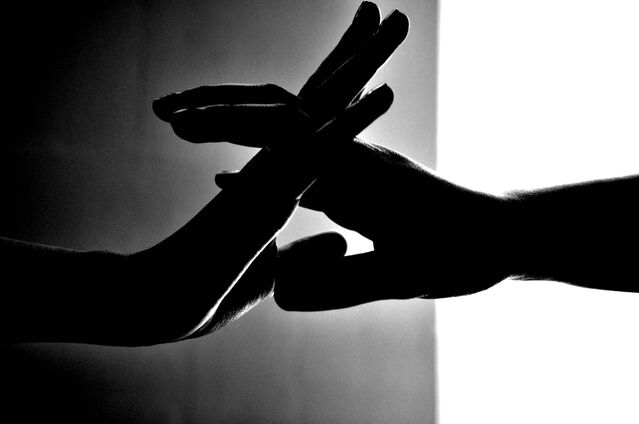Relationships
A Relationship Depends on How Vulnerable You Can Be With Someone
Even if you're related by blood, that doesn’t mean you have a relationship.
Posted May 6, 2022 Reviewed by Ekua Hagan
Key points
- It's possible to love a family member in an abstract sense while not feeling close to them.
- The number one factor in determining closeness to someone is one's ability to be vulnerable with that person.
- One must feel trust and safety before being vulnerable with someone else.

One of the more frequent but less acknowledged aspects of losing a parent is not feeling anything when the person dies. “What am I, some kind of monster?” a client asked recently after her father, who was abusive to her as a child, died. “How often did you feel safe enough to be vulnerable with your father?” I asked. “Never!” came her emphatic answer. “I couldn’t even breathe freely in his presence.”
We automatically assume that if we’re closely related to someone by bloodline then we should have a feeling of closeness and trust with that person. Certainly, this is the case in many families, and it’s a wonderful thing. But it’s not true about some families where people don’t feel safe within the home, whether because of actual abuse or just a toxic atmosphere of hostility and aggression. We may even love our family members, at least in the abstract, but that is not the same as saying we have a close relationship with them.
Relationships require vulnerability
I have developed a simple formula to describe the essence of this situation: Relationship = the amount of time you can spend vulnerable with the person. The more time you spend open and undefended, the more you feel connected, and the stronger your relationship is.
Conversely, if you have to keep your shields up around someone, if you share very little of your true self, you may be related by blood but that doesn’t mean you have a relationship. Certainly not one of connection and safety. Not one you will necessarily miss when it’s gone.
The importance of trust
I think it helps to have this conceptual clarity when we decide who we let be in the first row of people in our lives, who is in the second row, and who we relegate to the nosebleed section of the auditorium. I recommend you only let those you feel safe with, those with whom you can be your authentic self, into your first row. Just because they’re a sibling or a parent or an adult child doesn’t necessarily mean they need to be in your first row.
Only those who have earned your trust, only those with whom you can breathe freely and easily, should be close to you. Because ultimately, there are few things in life more pleasurable than being vulnerable with another human being. That is the stuff of relationships.


